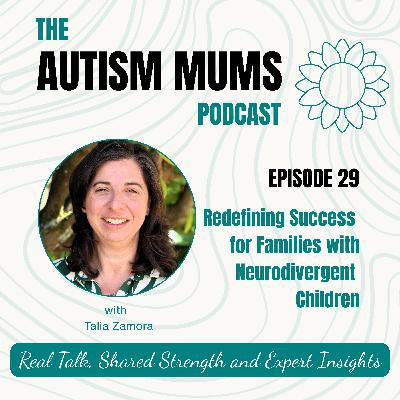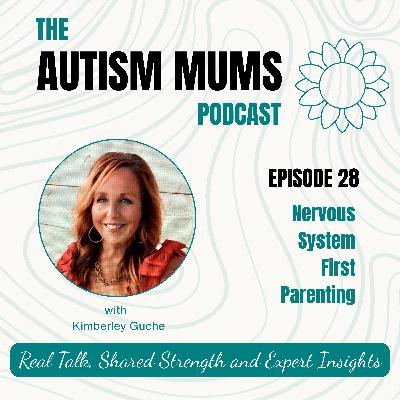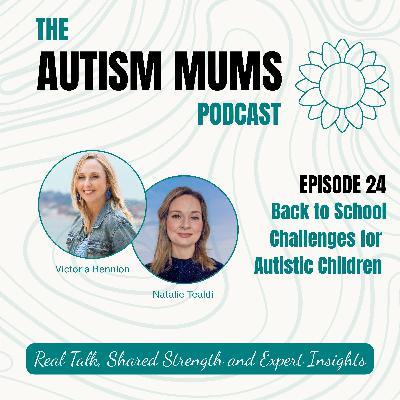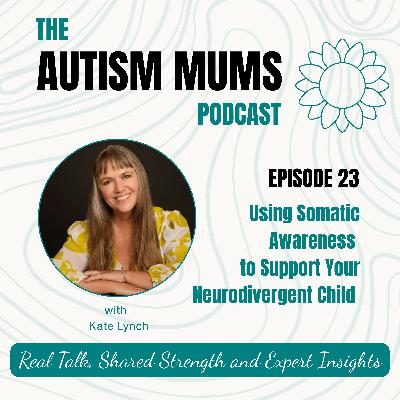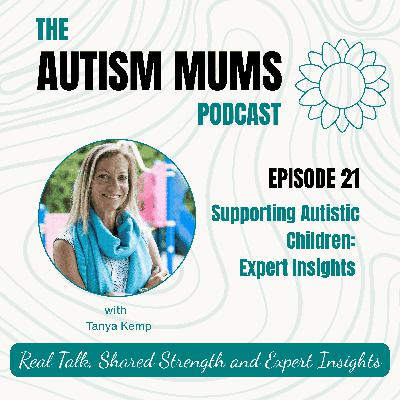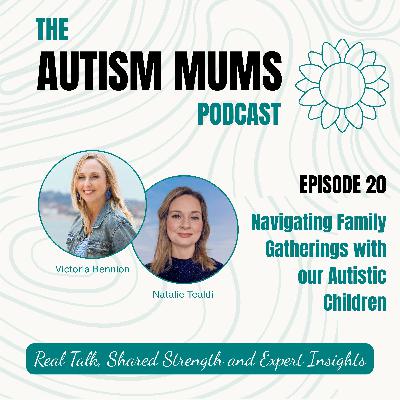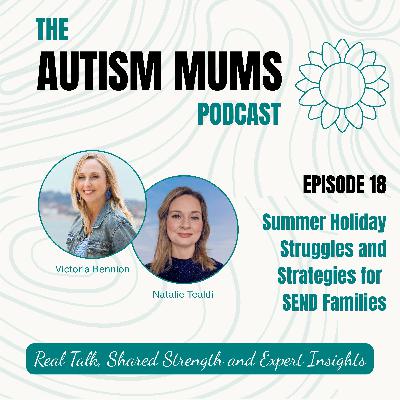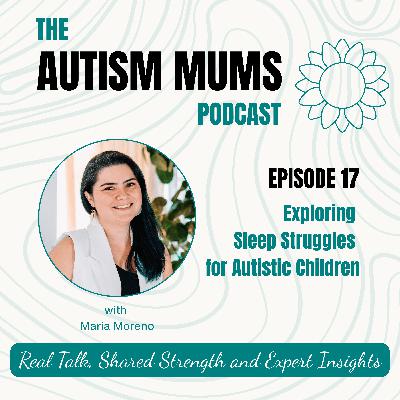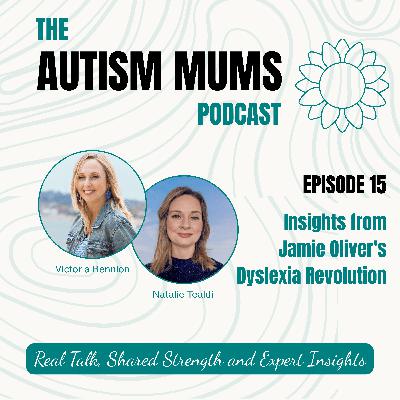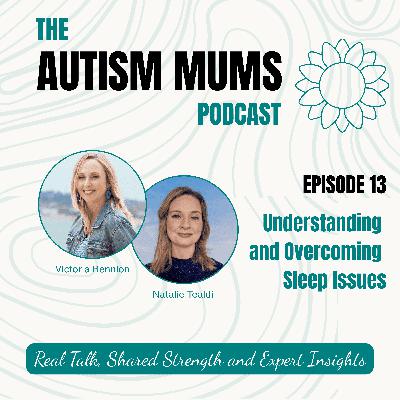Breaking Down Barriers to Education for Neurodivergent Children
Description
In this week's episode of The Autism Mums Podcast we're talking about some of the real challenges families face with the current education system, especially when it comes to supporting autistic children.
Key Takeaways
Outdated Education System: The current education system is often rigid and not designed to accommodate the diverse needs of neurodivergent children.
Importance of Flexibility: There's a need for more flexible learning environments that allow for play and creativity, especially for younger children.
Struggles with Inclusion: Being in school is different from being included in school; many children face challenges that are not adequately addressed.
Identifying Needs Early: Early identification of challenges, such as speech or coordination issues, is crucial, but support often falls short.
Training for Educators: There is a significant need for enhanced training for teachers on special educational needs to better support neurodivergent students.
Impact of Environment: The classroom environment, including displays and changes, can greatly affect a child’s ability to learn and cope.
Communication Gaps: There are often communication breakdowns between schools, parents, and local authorities, leading to misunderstandings and lack of support.
Mental Health Considerations: The mental health of both children and parents is deeply affected by the educational experience and the pressure to conform.
Advocacy and Trusting Instincts: Parents should trust their instincts regarding their child's needs and advocate strongly for appropriate support.
Systemic Challenges: Financial motivations can influence decisions made about educational support, complicating the advocacy process for parents.
Mentioned in This Episode
The quote Victoria mentioned seeing on social media is: When a child at school is anxious about going home, concerns would be raised. But when a child is anxious about going to school, we as parents are expected to encourage them to go no matter what. Think about that for a second. - seen on CureJoy Kids on Facebook.
Connect with The Autism Mums
https://theautismmums.com/
Follow us on Instagram https://www.instagram.com/theautismmums
Follow us on TikTok https://www.tiktok.com/@theautismmums
Follow us on Facebook https://www.facebook.com/theautismmums
Transcript
Episode 10 - TAM Podcast - Breaking Down Barriers to Education for Neurodivergent Children
[00:00:00 ]
Hello and welcome to the Autism Mums podcast. I'm Victoria. And I'm
Natalie. We are two sisters raising autistic children who know the
joy, the challenges, and the everyday moments. This is a supportive
space for honest conversations, practical tips, shared strength and
expert advice. Whether you are celebrating a win, surviving a
meltdown, or just trying to make it through the day, we are right
here with you.
Join us as we share the ups, the downs, and everything in between parenting autistic children.
Victoria Bennion: In this episode, Natalie and I are diving into
some of the real challenges families face with the current education
system, especially when it comes to supporting autistic children.
We talk about how mainstream school isn't always inclusive and what happens when children are expected to fit into a rigid system, and the emotional toll it takes when the support just isn't there. This is a personal [00:01:00 ]conversation drawn from our own experiences, and sadly, we know some of you may relate.
Natalie Tealdi: It's getting everyone to fit into a box, and I don't think that is a model that works
Victoria Bennion: No, it's not.
Natalie Tealdi: in my personal view. The education system is really outdated. Very outdated. They're so young when they start and
it doesn't need to be so rigid. If they could be a bit more
flexible, a bit more play into the learning environment, expecting
four and five year olds to sit on a chair and listen to lessons I
don't think is realistic.
Victoria Bennion: There's a difference between being in school and
being included in school as well. And when your child is struggling.
When my son started school he was struggling from day one. He was
struggling before he arrived.
There were difficulties he was having with speech, with food. They were probably the most obvious things before he started school because I was having conversations with the teachers or I was trying [00:02:00 ]
to, because I was so worried about the lack of clarity of the speech.
How he would be understood and what support he would get. And we were on a long waiting list at that time for speech therapy and we were
trying to push to get some support before he started, because so many
sounds were missing from his vocabulary. And I remember getting this
letter from the NHS just saying good news, he'd been allocated, a
batch of speech therapy with some other children.
It was gonna be in a group setting and it was to work on one sound. And I remember thinking, oh my God, one sound isn't gonna cut it. We are missing most sounds, more sounds than we've got, and. You have those settling in sessions before school, so there were two reception teachers when my son started school, so I remember speaking to one of them I didn't really feel that she heard me and somebody else recommended that I emailed the other.
Reception teacher because she was also the school SENDCO and she was really good. She was very supportive [00:03:00 ] and reassured me
really that there would be support given to him when he was in school. So from that point of view, that was okay, but once my son started at school, further difficulties became apparent. I dunno if that was true for
you
Natalie Tealdi: Oh yeah, definitely. It was a bit like an
explosion.
Victoria Bennion: There were things that we weren't aware of that
he was struggling with, that were uncovered during reception. So
things like coordination not being able to get change for pe, holding
a pen. And the teachers were very good at picking that up, but there
was a little group of them in my son's class that were pulled out for
extra support from very early on with handwriting. Can't remember
what else, to be honest, but that it was this same group. Now all of
those children have a diagnosis of some sort. I feel like it's
perhaps obvious you. I was told [00:04:00 ]
he'll grow outta so many of these things, particularly food that was
obviously a focus, like picky eating.
It will change. It didn't change. It didn't change. And. I don't think it changed for any of the children that were in that group. So they can certainly identify that there are issues from that young, so what can you do that's better? Because I know. It's the setup.
There's always gonna be children in every class. There's always gonna be a group. It's which group is it? So then how do you support these children best? Do you just keep your fingers crossed that they're gonna grow out of it?
Because the chances are that they're not, and they're going to need
extra support.
Or you just gonna keep your fingers crossed, that they go on to the next school, and that's where they'll completely explode and won't be able to cope. It seems to me that the system is not fit for purpose.
You've got say, one teacher with 30 children, so obviously no fault for the teacher, but they can't in the way that [00:05:00 ] it's set up. How can they possibly cater for all these different children's needs?
Natalie Tealdi: I totally agree with you there. In teacher training they need to include. Special educational needs training. It should be standard. They should be looking for it because we live in a world where there's, a percentage of people who are Neurodivergent and we should be recognizing that and, everybody should be aware of it in the workplace.
It's something that needs talking about a lot more because we need to be able to adapt our behaviors so that it's more inclusive.
Victoria Bennion: Yeah, absolutely. And you don't know the
different, that having the right support being in the right
environment would have for these children. Both of ours . At
different ages. They both had explosions, but it was around the same
time really of not being able to cope anymore.
And you just hear so many stories of other children who hold it all in, hold it all in until they absolutely can't anymore. But what if they were [00:06:00 ] given the right support? What if they were around people who understood if they had the training? The staff around them have the training, they might be able to think is the classroom too much of a
busy environment for them?
Do they need more sensory breaks? Could they be struggling with understanding what's being said to them? My son, I realize now he wouldn't have understood a lot of what was being said to him at that time. So that's really confusing.
If you're trained, you would know that perhaps change is really hard. So is there a way to have a visual timetable for everybody so


